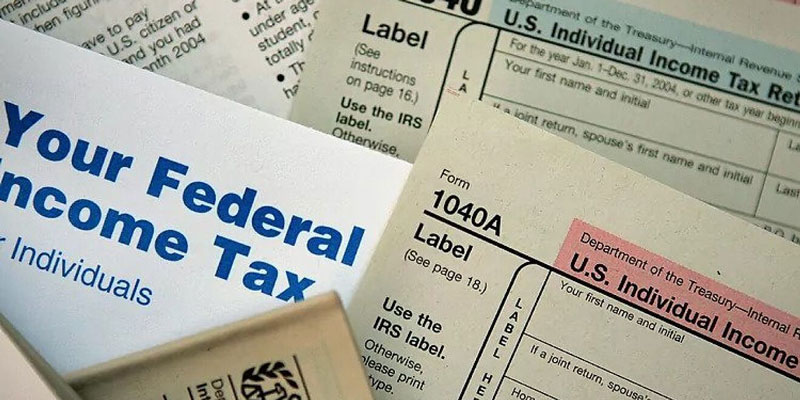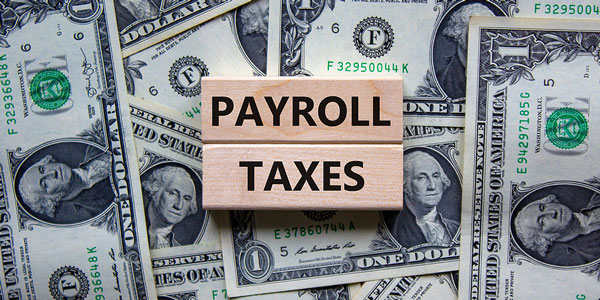
Are you looking for a way to save more money and plan for your financial future? One strategy that may help is opening a taxable account. A taxable account can be incredibly helpful in managing long-term savings or investment portfolios while providing tax flexibility when certain investments pay large returns.
In this blog post, we'll discuss what taxable accounts are and why having one could benefit both short-term and long-term goals.
We'll also review the types of contributions allowed to these accounts and look at various strategies on how best to invest within them. So if you want to learn more about setting up a taxable account, keep reading!
Defining Taxable Accounts
A taxable account is a type of investment account that allows an individual to save or invest money without having to pay taxes on the earnings. Any interest, dividends, or profits earned from investments in the account are subject to taxation once they are withdrawn.
Therefore, they can be used to build wealth over time and grow your portfolio faster than other types of accounts like traditional IRAs or 401(k)s.
However, it is important to remember that although contributions and earnings might not be taxed initially when funds are withdrawn from the account, you will owe income tax on the amount taken out. There may also be state and local taxes due depending on where you live.
Types of Taxable Accounts

There are two types of taxable accounts available:
1. Joint Accounts
These accounts are owned by two people, typically married couples or other family members such as parents and children.
This type of account allows individuals to build wealth together without paying taxes on the interest or earnings until funds from the account are withdrawn.
2. Individual Accounts
An individual owns these accounts, and can be opened with any brokerage firm that offers these accounts.
While contributions may not be tax-deductible, investors will still have access to many different types of investments–including stocks, bonds, mutual funds, ETFs, and more–allowing them to diversify their portfolios and potentially earn greater returns over time.
Tax Benefits of Taxable Accounts

Taxable accounts offer several tax advantages that can help investors save money and plan for the future.
Deferring Taxes
One of the primary benefits of using a taxable account is that taxes on investment gains are deferred until funds are withdrawn from the account.
This means that investors have more time to grow their portfolio before they owe any taxes, allowing them to earn greater returns over time.
Diversifying Investments
Taxable accounts also provide investors access to various investments, including stocks, bonds, mutual funds, and ETFs.
By diversifying their investments, investors can reduce risk while still being able to target certain asset classes or sectors for maximum return potential.
Contributing After Retirement
Another benefit of taxable accounts is that investors can contribute after they have retired, which can help them continue to grow their savings even when they are no longer earning an income.
This also provides additional flexibility for those seeking Social Security benefits at age 70.
Pros and Cons of Taxable Accounts
Pros:
Tax Deferment: As discussed above, one of the primary benefits of opening a taxable account is that taxes on any earnings or interest from investments held in the account are deferred until they are withdrawn. This allows investors to grow their portfolios faster without paying taxes on gains until later.
Diversification: Taxable accounts also give investors access to a wide range of investments, allowing them to diversify their portfolios and reduce overall risk.
Contributing After Retirement: Taxable accounts also give investors the flexibility to contribute after retirement, allowing them to continue growing their savings even when they are no longer earning an income.
Cons:
Taxes on Withdrawal: While taxes on earnings and interest may be deferred until funds are withdrawn from the account, it is important to remember that this means that any money taken out of the account will be subject to income tax at that time. There may also be state and local taxes due depending on where you live.
Limitations on Contributions: Contributions made to taxable accounts are not tax-deductible, meaning that investors will have to pay taxes on the money they invest into their accounts. This can limit how much someone can contribute in a given year.
Risk of Loss: Lastly, it is important to remember that investments in a taxable account are subject to market fluctuations and could potentially lose value. Therefore, investors need to research before investing and ensure they understand how each investment works and what type of risk they may be taking.
Taxable account investing strategy
1. Setting Goals
The first step to creating an effective taxable account investing strategy is to set goals for yourself.
Consider your short-term and long-term financial objectives and any potential risks you may be willing to take. A clear plan can help you make more informed decisions when selecting investments and allocate funds accordingly.
2. Researching Investments
Once you’ve established your goals, it’s important to research the various types of investments available in taxable accounts. Consider risk tolerance, liquidity needs, investment fees, and performance history when evaluating different options.
For stocks or bonds, pay particular attention to the company or issuer’s financial statements and ratings from independent sources like Morningstar.
3. Diversifying Your Portfolio
As with any investment, it’s important to diversify your portfolio when investing in a taxable account.
This means including investments from multiple asset classes and sectors and different investments like stocks, bonds, and ETFs, depending on your goals and risk tolerance.
By diversifying across different types of investments, you can reduce the overall risk of loss and increase the chances of achieving long-term success.
4. Evaluating Performance
Once you have established an investing strategy for your taxable account, it is important to monitor performance regularly.
Look at how the various investments are performing compared to their benchmarks and make adjustments if necessary.
By regularly evaluating your investments, you can ensure your portfolio is on track to reach your goals.
5. Minimizing Taxes
Remember that taxable accounts will be subject to taxes when money is withdrawn from the account, so it’s important to consider how to minimize this tax bill.
Consider strategies like tax-loss harvesting and charitable giving if options are appropriate. Additionally, consider whether any tax breaks or deductions, such as those related to retirement contributions or capital gains taxes, may apply to you.
FAQs
What is a taxable account example?
A taxable account is an investment account associated with a financial institution, such as a bank or brokerage, where investments can be made and gains taxed at the investor's income tax rate. Examples of taxable accounts include stocks, bonds, mutual funds, and ETFs.
How much money can you contribute to a taxable account?
For 2021, individuals' maximum contribution to a taxable account is $6,000 ($7,000 for those over 50). Contributions must come from after-tax earnings. Contributions that exceed this limit are subject to penalties.
What type of investments can I hold in my taxable account?
You can hold many types of investments inside your taxable account, including stocks, bonds, mutual funds, ETFs, commodities, and other investment products.
Conclusion
Taxable accounts are a great way to save for short-term and long-term goals. They offer tax flexibility, allowing money to remain in the account while still being able to take advantage of large payouts from certain investments.
It's important to make sure that you're familiar with the types of contributions allowed to these accounts and any potential fees associated with having one. With this information in mind, you'll be well-equipped to save for your future with a taxable account.











